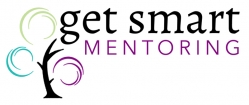 It’s The Big Question. It’s an instant existential crisis. And it’s something asked constantly: What do you want to do when you grow up?
It’s The Big Question. It’s an instant existential crisis. And it’s something asked constantly: What do you want to do when you grow up?
We get a lot of practice answering this question; all the way through childhood we choose careers such as firefighter, ballerina, or teacher. When I was informed at the age of five that I couldn’t grow up to be a princess (you can imagine the disappointment), I chose novelist. Another friend chose dog trainer. Another, an Olympic swimmer—or, if that didn’t work out, a police officer. While I think our individuality and ambitions were to be admired, not one of us is now paid to write novels, train dogs, swim, or even police.
At some point in our life, we have to make a more thought-out decision about our career. And it’s tough. The moment we start narrowing it down comes ridiculously early—long before we have experience of long-term full-time careers. In the U.K., you have to start thinking about this when you’re 16, so you can pick the right 3-4 A-levels to get onto your chosen degree subject at 18. In fact, for some A-levels, you need to have picked the right GCSEs when you were 13. In the U.S., there’s a little more flexibility, but you probably still consider your career when picking your university major. Then, in both the U.S. and U.K., you do internships and work experience through university. Yet often they’re still done with that “oh no, I don’t know what I want to do, but maybe this will look good on my résumé” panic.
First of all, stop panicking. Very few people actually know what they want to do—but it will still work out okay. In the meantime, whether you are 16, 18, 22, or older, there are three things you should remember about choosing a career.
1. Forget School Subjects.
We go through school thinking things like ‘I want a job related to English, and I definitely don’t want anything with Maths in it!’—but school isn’t a gateway to a job.
Here are some of the jobs traditionally linked to a love of English: writer, editor, bookseller, librarian, English teacher, PR executive, translator (if you know another language). The problem is, loving your English Literature lessons doesn’t mean you’ll love working as a bookseller—especially if you’re not interested in customer service! Nor does loving science lessons mean you’ll be fulfilled editing science textbooks, while enjoying PE can still leave you hating being a physiotherapist/physical therapist.
Instead of thinking about classes, write a list of the attributes you want your job to have. These should be characteristics like: creative, strategic, analytical, lots of interpersonal interaction, working independently, responsibility, fast-paced, rewarding, not behind a desk, or affecting real world matters.
Done that? Good. Now start thinking of jobs that match those attributes. Let’s take an example list:
- Creative
- Strategic thinking
- Responsibility for projects early on
- Does no harm/has a positive effect
Depending on the company, this list could describe a: web designer, jewelry designer, writer (fiction or non-fiction), teacher, a specialist or in-house marketer, translator, choreographer, producer, designing plans for Non-Government Organizations, curator, or more.
No list based on a school subject would give you web designer, jewelry designer, fiction writer, or choreographer—yet it’s possible that one person could enjoy all of those occupations, depending on their levels of literacy and physical coordination. So don’t limit yourself; consider the entire range of careers that meet your criteria.
2. Remember That You Won’t Run Out of Time.
Life isn’t a sprint, or even a marathon. The idea of an ‘end point’—the perfect career with the perfect partner and the perfect home—is dangerous. It devalues everything that comes before that end point (and suggests that afterwards, there’s nothing to aim for).
Have you wasted your time and efforts if you did two internships with accounting firms, only to decide you want to be a web designer? Or if you dropped Biology at 16, only to discover your degree choice of Speech Therapy requires an A in it up until the age of 18? Or if you studied Russian at university with the aim of moving there, only to realize you’d prefer living in South Korea?
No, you have definitely not.
These experiences may not be the most efficient route into your career, but they are still valuable. For a start, in doing them, you realized what you don’t what to do! Secondly, you will have picked up valuable transferrable skills.
Don’t be afraid to start over. It doesn’t matter if you go to university at 19, if it’s so that you can get an A in Biology to study Speech Therapy. Nor does it matter if you have to do internships after school because you need experience in digital media rather than accountancy. One extra year in education or internships, in exchange for greater job satisfaction, is an excellent exchange.
3. You are More Than Your Career.
While it’s nice to have a job that brings meaning to your life, it’s all right if your job is just “okay.” Fulfillment can come from hobbies, personal relationships, travel, or charitable actions. So if your friends are gushing about how much they want to be a doctor, or a teacher, or run a startup, but all you can think is that you want a 9-5 job with enough money to live comfortably and enough free time to do things that are more important to you—that’s okay.
On the other hand, if you’re desperate for a meaningful job but can’t get the one you want, that’s also okay. Maybe you really want to help improve standards of education among poorer students, but can’t pass the exams to study teaching; that doesn’t mean you can’t help in other ways. You could get a job working in management and then help the schools to manage their resources and finances. You could work in construction and negotiate discounts for schools in need. You could lobby your local politicians to deliver greater educational change. You could also use your free time to support your passion, whether by running sponsored marathons to raise money for school libraries or by joining a school’s board of directors.
Don’t allow your career to define your accomplishments: you are far more than that. Your experiences are worth more than how quickly you walked into a job, and you are certainly not limited to what you can achieve Monday to Friday, 9-5.
Get Smart, Get Inspired
Whether you are 14, 19, 23 or a parent/mentor Join our mailing list (we only email 1x a week with something inspiring!) here!
What will they find when they Google you?
Would you like to create a positive online presence? Consider writing for us! Apply here!








Leave A Comment